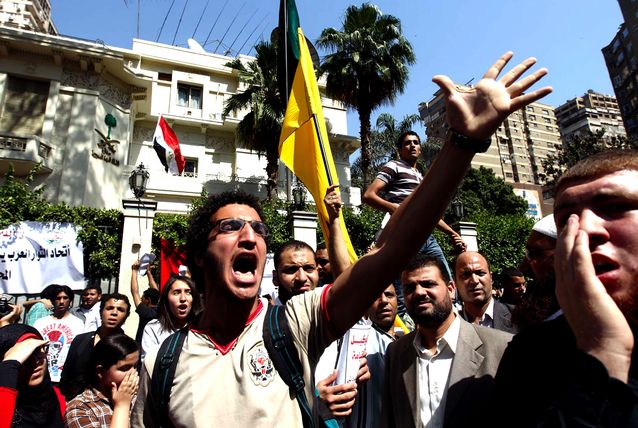By Islam Serour
Falling cement prices are attributable to decreased demand and the destruction of smuggling tunnels between Gaza and Rafah, Ahmed Al-Zeiny, the head of the Construction Materials Department at the Cairo Chamber of Commerce, told the Daily News Egypt.
These two reasons, according to Al-Zeiny, have contributed greatly to the drop in cement prices, which fell as low as EGP 460 per tonne. However, he noted that these prices are still above international prices, which have declined from US$90 to US$50 per tonne.
“Retailers and trading agents used to withdraw up to 5,000 tonnes from the three main outlets; al-Aresh Cement Company, Sinai Cement factories and Al-Shoura factory in Port Said. A substantial portion of these quantities were smuggled to Gaza through the tunnels,” Al-Zeiny said.
Many construction projects have either slowed down or stopped due to the political and security climate, dragging domestic demand on construction materials in general and cement in particular downwards.
Cement prices represent a key factor in housing and development in Egypt. Soaring housing prices create major social problems, a headache for the government for decades.
The blame for the housing problem has been placed mainly on the increasing prices of construction materials. The government decided to suspend cement exports for six months in order to increase domestic supply to maintain price level affordable. However, cement exports resumed after the six-month period, until domestic producers voluntarily refrained from exporting due to the drop in international prices, and decided to focus on their domestic market projects.
“The reason for cement prices remaining above international prices is the lack of market regulations with regard to supply and demand,” Al-Zeiny said. The supply and demand mechanism does not correlate with the actual value of cement prices in Egypt. Al-Zeiny explained that private cement producers had unofficially quoted cement prices to keep them within a range between EGP 400 to roughly EGP 500 per tonne, which is much higher than international prices.
“The same practices under the old regime are still in place. We presented several memorandums referring to the lack of regulations problem, but the government always turned a deaf ear,” Al-Zeiny said.
Al-Zeiny added that, “the only state-owned cement factories are al-Aresh Cement Company and Sinai Cement Factory, which are attached to the Egyptian military with a production capacity of 7,000 tonnes per day. Other factories were privatised to foreign investors, who operate in an deregulated market.”
According to previous news reports, estimating cement prices in Egypt after the 25 January uprising show that cement production plummeted dramatically to 50 percent during the second half 2011, compared to the same period in the previous year. Cement output plunged to 1.8 million tonnes in August 2011, from a monthly average of four million.


